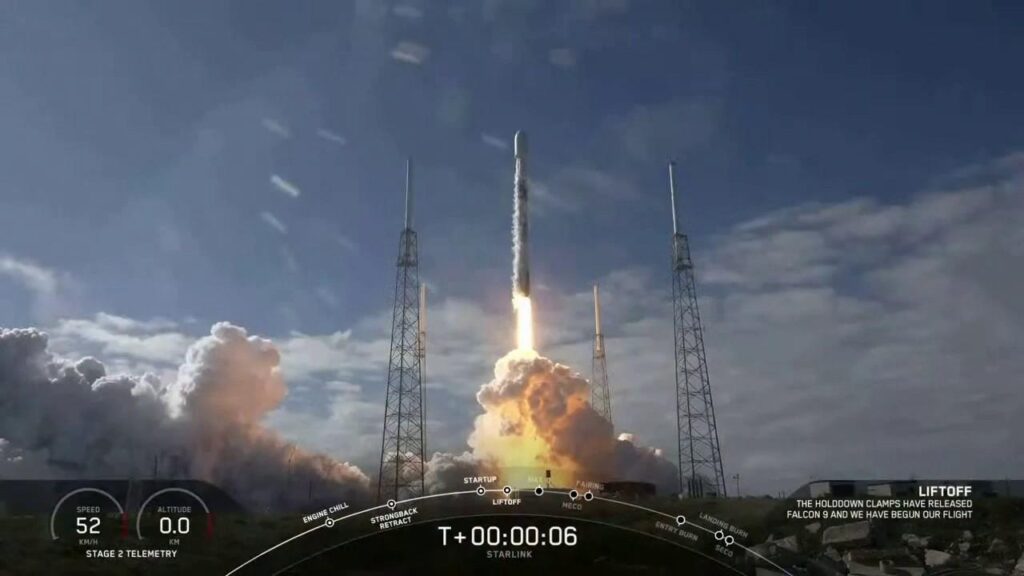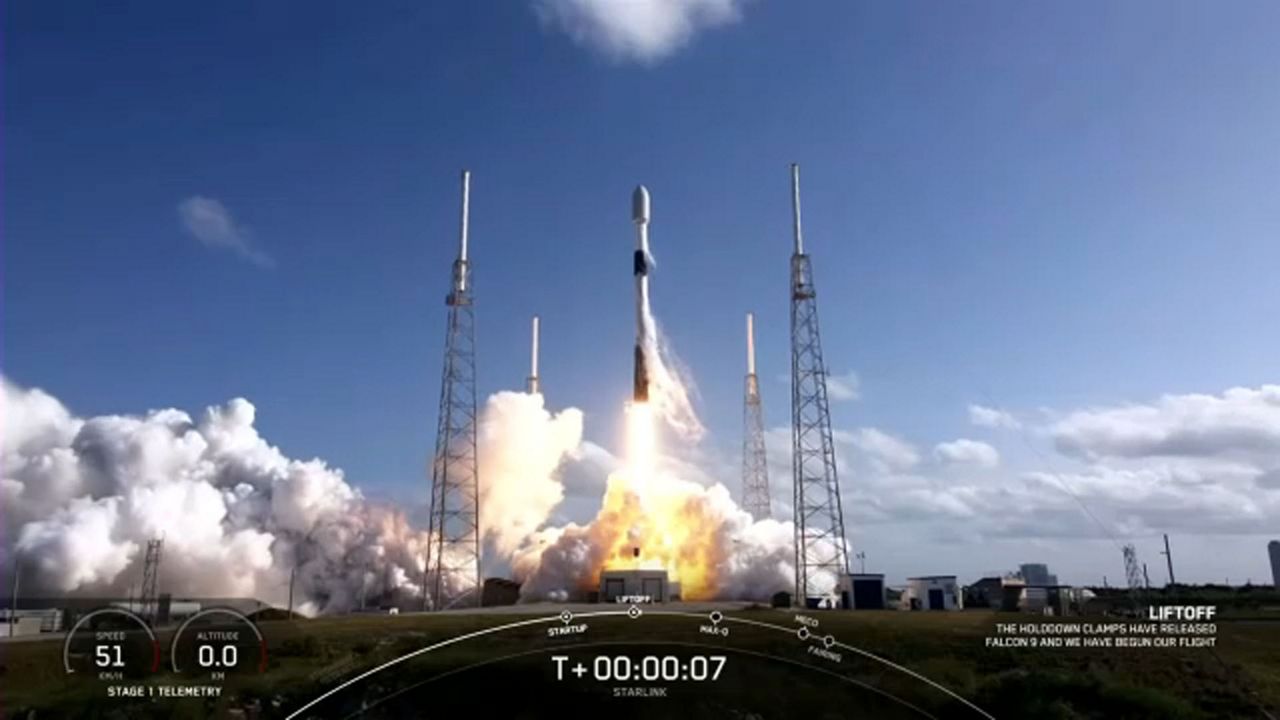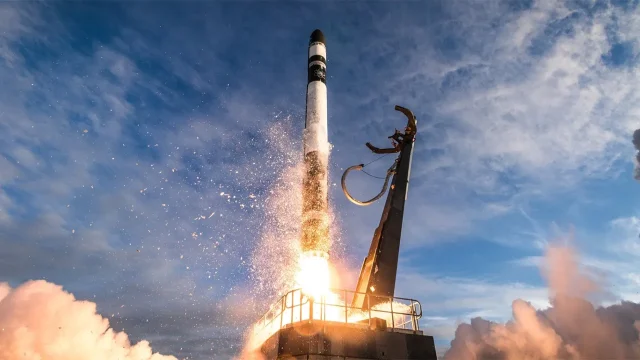SpaceX launched a Falcon 9 rocket carrying 54 upgraded Starlink internet satellites into orbit on December 28th, marking the company’s 60th flight of the year. The launch, which took place at 4:34 a.m. EST from the Cape Canaveral Space Force Station in Florida, was the first of a new generation of Starlink satellites, known as Gen2. Here are the details…
SpaceX launches 54 upgraded Starlink satellites and nails rocket landing at sea
According to Jesse Anderson, a SpaceX production and engineering manager, the Gen2 satellites will be able to operate in new orbits that will increase capacity and provide faster service, particularly in areas that are currently oversubscribed. In addition to being more powerful than the previous generation of Starlink satellites, Gen2 satellites will also be able to beam service directly to smartphones.

The Falcon 9 first stage successfully returned to Earth eight minutes after liftoff, landing on the SpaceX drone ship A Shortfall of Gravitas in the Atlantic Ocean. This marked the 11th flight for the Falcon 9 first stage, which has previously been used for five Starlink missions, two GPS satellite launches, and the Nilesat 301 commercial satellite launch.
SpaceX also plans to recover the two payload fairing halves that made up the Falcon 9’s nose cone for reuse. The company received partial approval from the Federal Communications Commission (FCC) on December 1st to deploy 7,500 Gen2 satellites, with a pending application to send nearly 30,000 of these satellites to low Earth orbit. Eventually, SpaceX plans to use its massive Starship rocket for future Starlink launches.
(via)




 Shiftdelete.net
Shiftdelete.net









